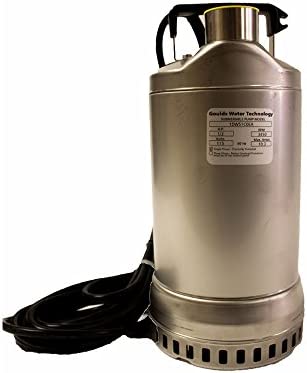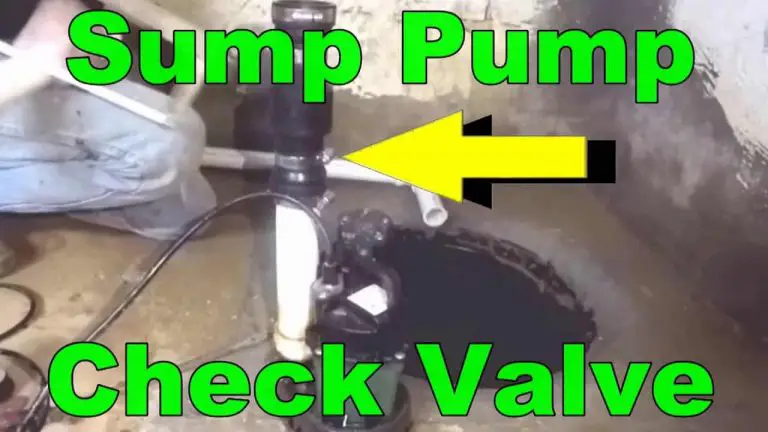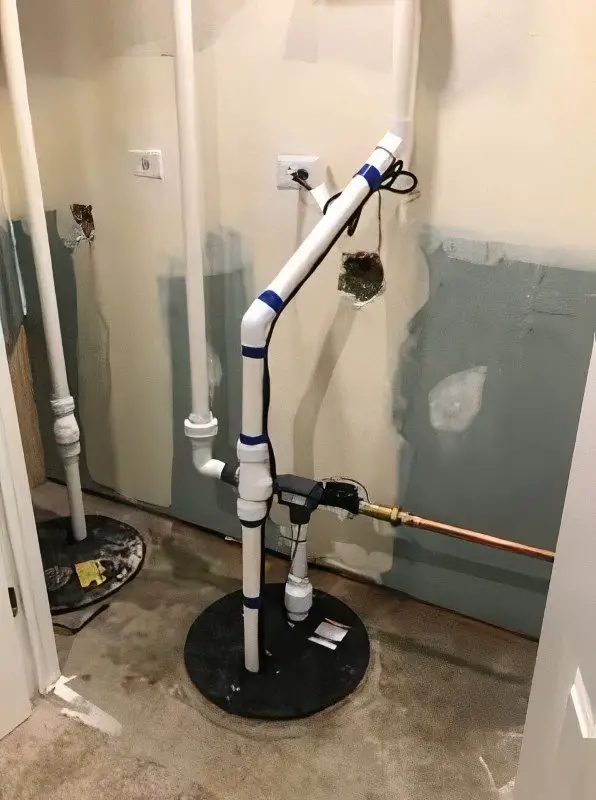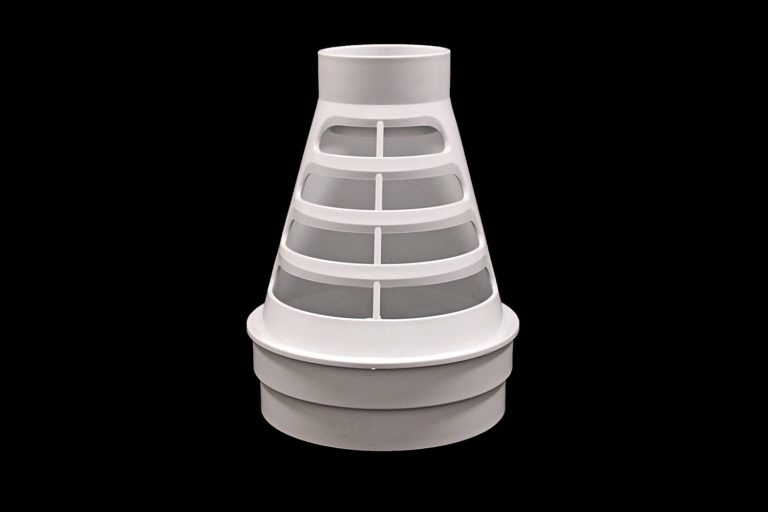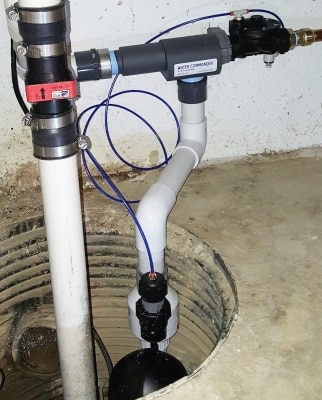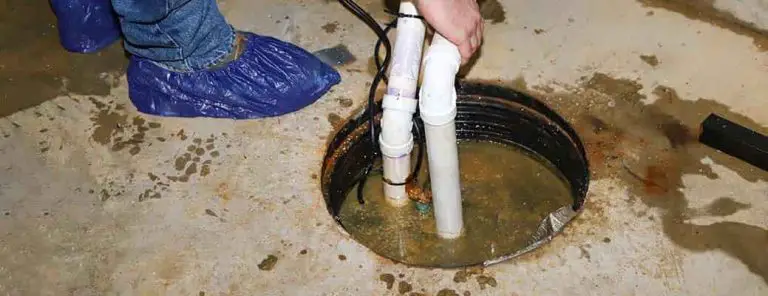How Important is Amps in a Sump Pump
A sump pump is a device that is used to remove water from an area. The most common use for a sump pump is to remove water from a basement or crawl space. A sump pump can also be used to remove water from a pool or spa.
Sump pumps are available in a variety of sizes and styles. The most important factor to consider when choosing a sump pump is the amount of water that needs to be removed.
How Important is Amps in a Sump Pump
A sump pump is one of the most important pieces of equipment in a home that is susceptible to flooding. It is responsible for pumping water out of the basement or crawlspace and away from the home, preventing serious damage.
Because it needs to be able to move a lot of water quickly, amps are an important factor to consider when choosing a sump pump.
The amount of water that a sump pump can move depends on two things: the horsepower of the motor and the number of gallons per minute (GPM) that the pump can handle. The GPM rating will tell you how many gallons of water the pump can move in one minute and is usually listed at 5’s or 10’s (i.e. 10 GPM).
A higher GPM means that the pump can move more water, which is important if your basement floods frequently or if it rains heavily.
But what about amps? How do they play into all this?
Amps measure how much electricity is flowing through something and, in terms of sump pumps, determine how powerful the motor is. A higher amp rating means a more powerful motor, which can come in handy if you live in an area with frequent power outages – like during severe weather conditions. A higher amp rating also means that the sump pump will be able to move water faster because it doesn’t have to work as hard.
So, while GPM tells you how much water your sump pump can move, amps let you know how fast it can do its job. When choosing a sump pump, it’s important to find one with a high GPM and amp rating so that you know your basement will be well-protected against flooding.
Measuring well pump startup surge amp draw an amp clamp.
Sump Pump 15 Or 20 Amp
If you have a sump pump in your home, you may be wondering if it is better to use a 15 or 20 amp circuit. Here are some things to consider:
The horsepower of the sump pump will dictate how much amperage is required.
A 1/3 HP sump pump will require about 7 amps, while a 1 HP sump pump will require about 14 amps.
The capacity of the drainage system also needs to be considered. A larger drainage system will require more amperage to operate effectively.
If the power goes out, a backup battery-operated sump pump can kick in and keep the basement from flooding until power is restored. However, these pumps typically require about 12 amps to operate, so a 15 or 20 amp circuit may be needed depending on the size of the backup pump.
In general, most homes should have no problem running a 1/3 or 1/2 HP sump pump on a 15 amp circuit.
If you have a larger sump pump or need to run multiple pumps, then you may need to upgrade to a 20 amp circuit.
Sump Pump Amp Draw
A sump pump is a device that is used to remove water that has accumulated in a sump pit. The water is typically pumped out of the pit and away from the home. Sump pumps are used in homes with basements or crawlspaces to prevent water damage from occurring.
Sump pumps come in a variety of different sizes and styles. Some are submersible, meaning they must be placed inside the sump pit, while others are pedestal style and sit outside of the pit. There are also battery-operated sump pumps available for homes that do not have access to an outlet.
The size of the pump you need will depend on the size of your sump pit and the amount of water it collects. It is important to choose a pump that is powerful enough to handle the amount of water your pit collects. Otherwise, your pump could become overloaded and fail.
Most sump pumps run on electricity, however, there are some models that can be powered by a backup battery in case of a power outage. If you live in an area where power outages are common, it is worth investing in a battery-operated model.
Sump pumps typically have two parts: an impeller and a volute.
The impeller helps to move water through the pump while the volute houses the motor. When shopping for a new sump pump, it is important to make sure both parts are made from durable materials that can withstand being submerged in water for extended periods of time.
How Many Watts Does a Sump Pump Use
A sump pump is a device that is used to remove water that has accumulated in a sump basin. Sump pumps are commonly used in basements where they are installed in the floor or in a pit. The water is typically pumped out of the home and away from the foundation to prevent flooding.
Most sump pumps use between 250 and 400 watts of power. The average cost to operate a sump pump is between $0.25 and $0.50 per day, depending on electricity rates.
How Many Amps Does a 1/3 Hp Sump Pump Draw
When it comes to sump pumps, one of the most common questions is “How many amps does a 1/3 hp sump pump draw?” To answer this question, we need to understand a few things about sump pumps and electrical circuits.
First, let’s look at the basic anatomy of a sump pump.
A sump pump has three main parts: an impeller, a motor, and a housing. The impeller is the part that actually moves the water. It’s powered by the motor, which is usually electric.
The housing encloses everything and helps keep the water in the pit from coming back up and flooding your basement or crawl space.
Now that we know how a sump pump works, let’s talk about how much electricity it uses. Most 1/3 hp sump pumps will use around 7-9 amps when they’re running.
However, this can vary depending on the specific model of pump and what voltage it’s designed for (110v or 220v).
If you have a 110v sump pump, you can expect it to use about 7 amps when it’s running. If you have a 220v sump pump, you can expect it to use about 9 amps when it’s running.
These are just estimates though – your actual usage may be slightly higher or lower depending on your specific setup.
Keep in mind that you only pay for the electricity you use while the pump is running. So if your 1/3 hp sump pump runs for an hour each day, you’ll only be paying for that hour of electricity each day – not 24 hours worth!
This is why having a properly sized and installed sump pump can save you money on your monthly electric bill.
1 Hp Sump Pump Amp Draw
A sump pump is a necessary appliance in many homes, especially those built on a sloped lot or in an area that is prone to flooding. Sump pumps are used to remove water that has accumulated in a sump basin, typically located in the basement of a home. The water is then pumped out of the basin and away from the home, preventing flooding and costly damage.
While most sump pumps are electrically powered, there are also battery-operated models available. Battery-operated sump pumps are a good choice for homes that lose power frequently or for those who want to be prepared for a power outage.
Sump pumps come in different sizes, with the horsepower (HP) rating indicating the amount of water they can move per minute.
A 1 HP sump pump can typically move about 4800 gallons per hour (GPH), while a 3/4 HP model can move 3600 GPH. The size of your basement and the amount of rainfall you get will help determine the size sump pump you need.
1/2 Hp Sump Pump Wattage
If you have a sump pump in your home, you may be wondering how much power it uses. After all, sump pumps are not known for being energy-efficient. In fact, most sump pumps use around 1/2 horsepower (hp), which means they use a lot of electricity.
So, how much does a 1/2 hp sump pump use? Well, the answer depends on a few factors, such as the size of the pump and the efficiency of the motor. However, on average, a 1/2 hp sump pump will use about 700 watts of power.
That might seem like a lot, but it’s actually not too bad when you compare it to other appliances in your home. For example, a typical refrigerator uses about 1,200 watts and a clothes dryer uses around 3,000 watts. So, while your sump pump may not be the most energy-efficient appliance in your home, it’s certainly not the worst.
There are ways to reduce the amount of power your sump pump uses. One way is to make sure that the pump is only running when it needs to be. This can be done by installing a float switch that turns the pump on only when water levels get too high.
Another way to reduce power usage is to choose a more efficient model of sump pump. Many newer models are designed to be more energy-efficient than older models.
If you’re concerned about how much power your sump pump is using, talk to your local electrician or plumber for more information and tips on reducing power consumption.
Sump Pump Wattage for Generator
If you live in an area that is prone to flooding, you know that a sump pump is an important part of your home’s flood prevention system. But what happens when the power goes out and your sump pump can’t operate? That’s where a generator comes in.
A generator can provide the power needed to keep your sump pump running during a power outage. But how do you know how many watts your generator needs to produce in order to keep your sump pump running?
The answer depends on the type and size of your sump pump.
A typical submersible sump pump will require about 500 watts to operate. However, if you have a larger or more powerful sump pump, it may require up to 1,500 watts of power.
To be safe, it’s always best to consult with an expert before purchasing a generator.
They can help you determine the wattage you need based on the type and size of your particular sump pump.
Sump Pump Battery Backup
A sump pump is a vital part of any home’s flood prevention system. But did you know that a battery backup system can keep your sump pump running even if the power goes out?
Sump pumps are typically powered by electricity, which means they are vulnerable to power outages.
A battery backup system provides peace of mind in knowing that your sump pump will continue to run in the event of a power outage.
Battery backup systems are not fail-safe, however. It is important to regularly test your battery backup system to ensure it is working properly.
You should also have a manual back-up plan in place in case of extended power outages or other emergencies.
If you live in an area prone to flooding, a battery backup system for your sump pump could be the difference between a minor inconvenience and major damage to your home.
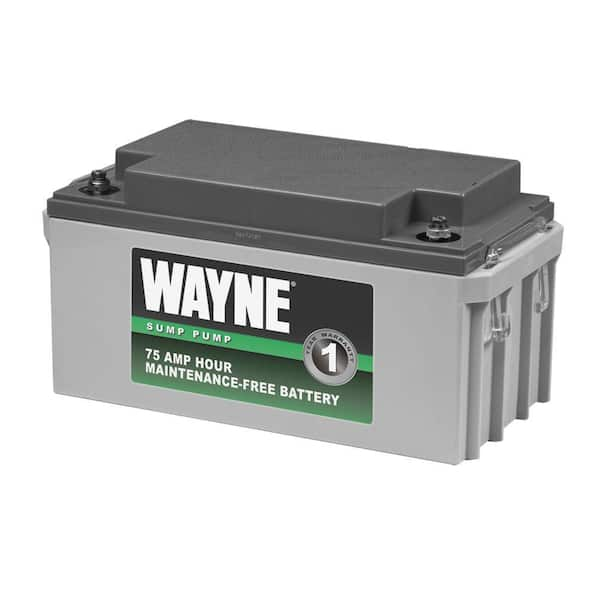
Credit: www.homedepot.com
How Many Amps Does It Take to Run a Sump Pump?
A sump pump is a device that is used to remove water that has accumulated in a water-collecting sump basin, typically found in the basement of homes. The water is pumped out of the sump basin and away from the home. Sump pumps can be powered by electricity or by batteries.
The average residential sump pump will use about 500 watts of power and will require about 9 amps of current. However, the actual amount of power and current required may be more or less depending on the specific model and size of sump pump being used.
How Many Amps Does a 1/4 Hp Sump Pump Draw?
A 1/4 hp sump pump typically draws about 7 amps.
How Many Amps Does a 3/4 Hp Sump Pump Draw?
When it comes to sump pumps, one of the most important things to consider is the amount of amps that it will draw. For a 3/4 hp sump pump, you can expect it to draw around 9-10 amps. This is just an estimate though and could be higher or lower depending on the specific model and make of the pump.
It’s always best to check with the manufacturer to get an accurate number.
What Size Breaker Do I Need for a 1/2 Hp Sump Pump?
If you’re planning on installing a 1/2 hp sump pump, you’ll need a breaker that can handle at least 15 amps. However, it’s always best to err on the side of caution and go with a 20 amp breaker. This will ensure that your pump has plenty of power to run smoothly and efficiently.
Conclusion
Amps is a unit of measurement that tells you the strength or power of an electrical current. In terms of sump pumps, the amp rating will tell you how much water the pump can move in a certain amount of time. A higher amp rating means the pump can move more water.
So, how important is amps when choosing a sump pump? If you’re looking for a sump pump to handle a light to moderate amount of water, then amps isn’t as big of a deal. However, if you’re dealing with large amounts of water or if your basement is prone to flooding, then you’ll want to pay attention to the amp rating and choose a pump that can move enough water to keep your basement dry.

